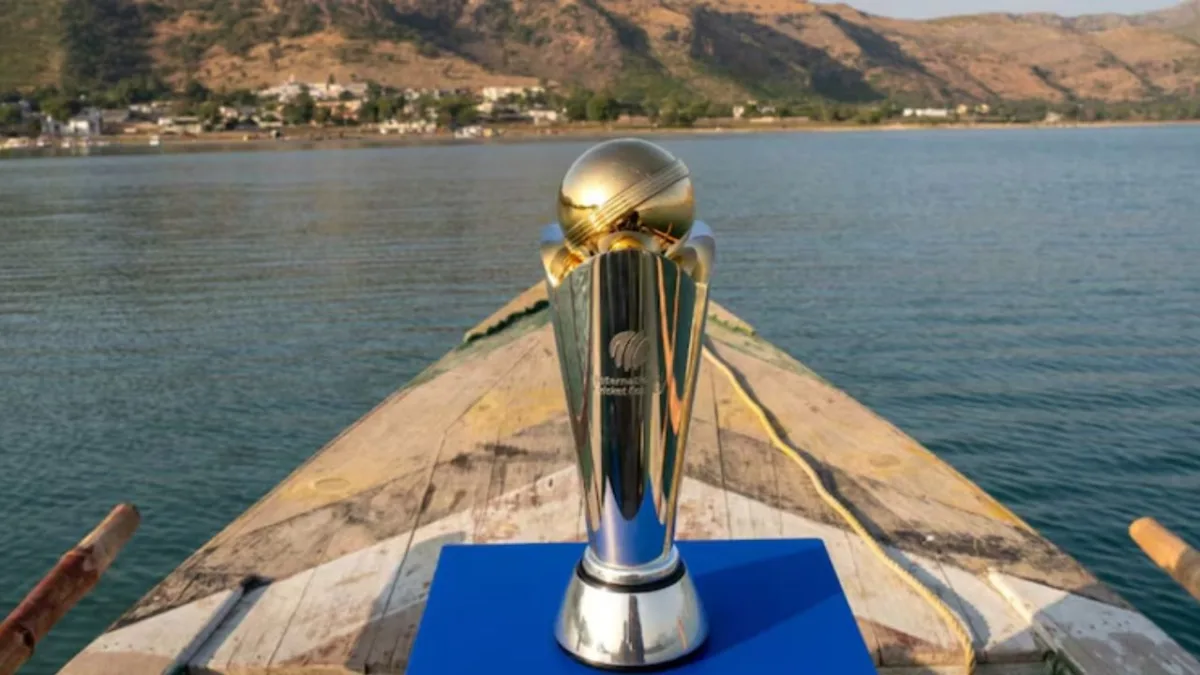Around two hundred British politicians, followed by the South African sports minister, have called for a boycott of the match against Afghanistan in the upcoming Champions Trophy.
England and South Africa are scheduled to play Afghanistan in the group stage of the eight-team Champions Trophy, starting on February 19. Both countries have demanded that their teams not play against Afghanistan due to concerns over the curtailment of women’s rights in the country. British politicians, later followed by the office of UK Prime Minister Keir Starmer, left the final decision to the England cricket team. Similarly, South African sports minister Guyton McKenzie has urged Cricket South Africa (CSA) to make the call.
The question now is whether it is possible for the governments of the two countries to implement a boycott of the Champions Trophy match against Afghanistan. What stance can the cricket boards of England and South Africa, the ECB and CSA, take on this issue, and what action can the ICC, the cricket governing body, take?
The Impact of Afghanistan’s Women’s Cricket Ban
One of the conditions for the Afghanistan Cricket Board (ACB) to gain full ICC membership in 2018 was the formation of a women’s cricket team. The ACB made progress in 2020 by signing 25 female cricketers to contracts. However, after the Taliban took power in August 2021, the women’s team was disbanded, and the ban on women’s activities, including university studies, has severely undermined women’s rights in the country.
Labour MP Tonia Antoniazzi calls for boycott of England cricket matches in Afghanistan, asking PM to meet South Africa and Australia to “boycott the games as well”
Keir Starmer says “we all should condemn suppression of freedoms”
#PMQs https://t.co/jsHwXeZUfD pic.twitter.com/ZVHWoE7Pko— BBC Politics (@BBCPolitics) January 8, 2025
Boycotts in Cricket’s Political History
Human rights organizations and governments have criticized the Taliban’s policies in Afghanistan. In response, there have been discussions in England and South Africa about not playing against Afghanistan in the Champions Trophy as a form of protest. This follows a history of England boycotting matches for political reasons, such as their refusal to play in Zimbabwe during the 2003 World Cup due to the policies of Robert Mugabe’s government.
Will the 2003 Incident Be Repeated?
England’s first match in the 2003 World Cup was in Harare, Zimbabwe. At the time, the UK government urged the cricket team to boycott the Zimbabwe match. Prime Minister Tony Blair stated, “We have made it clear to the cricket authorities that they should not go to Zimbabwe. I hope they will take our advice into account. But the decision to go or not is theirs.”
ENGLAND to BOYCOTT match vs Afghanistan in ICC CHAMPIONS TROPHY 2025
Region -Afghan women are facing severe injustices under the Taliban regime.
women’s cricket team was disbanded in 2021
Report -(ZEENEWS)— FREE HIT (@FREEHIT06) January 7, 2025
According to the Telegraph, during the England team’s meeting at the Cullinan Hotel in Cape Town, the pressure to comply with the boycott was intense. Despite ongoing trade and commerce relations between the UK and Zimbabwe, the cricketers felt torn. Some even cried. Ultimately, the team, led by Nasser Hussain, chose not to travel to Zimbabwe.
Although England believed they could still make it to the next stage without playing that match, they failed to reach the Super Six despite winning three of their remaining five matches. The incident led the ECB to decide that cricketers would not be put in a position where they would have to make such a difficult choice again.
Therefore, Jos Buttler, like Nasser Hussain in 2003, is unlikely to have to make the final decision on the Afghanistan match this time.
CSA’s response after receiving correspondence from a member of the British Parliament requesting a boycott of Afghanistan in the ICC Champions Trophy
— Werner (@Werries_) January 9, 2025
What is the ECB and South Africa’s Stance?
After receiving a letter from over 160 British politicians calling for a boycott of the Afghanistan match, ECB Chief Executive Ian Gould responded that not only England but all ICC member countries should take action. He emphasized, “The ECB strongly condemns the treatment of Afghan women and girls under the Taliban regime. The ECB has refrained from playing a bilateral series with Afghanistan because the country does not allow women to play cricket.” However, Gould stated that it would be more effective if the ICC acted collectively, rather than one country protesting alone.
The South African sports minister also weighed in, saying, “It is not up to me as the sports minister to decide whether Cricket South Africa will respect the cricket schedule against Afghanistan. If it were up to me, it certainly would not have happened.”
CSA president Rhian Richards echoed the ECB’s sentiment, saying, “We believe a more integrated and collaborative approach from all ICC members would be more effective. The CSA is committed to continuing constructive discussions with the ICC and other members to find a solution that supports women’s cricket in Afghanistan and brings about meaningful change in the country.”
What Can the ICC Do?
As the governing body of cricket, the ICC is unlikely to support the boycott of the Afghanistan match in the Champions Trophy. With the tournament just a month away, creating another controversy is impractical, especially since there is already tension around India’s reluctance to tour Pakistan.
The ICC has a history of not supporting match boycotts, as seen in the 2003 and 1996 World Cups when countries like England and Australia refused to play matches against teams in politically contentious regions.
Any decisions regarding Afghanistan’s participation will likely come from ongoing discussions within the ICC. The issue also involves leadership dynamics, as the ICC chairman, Jay Shah, has strong political connections in India. Despite the Indian government’s lack of recognition of the Taliban, India’s relations with Afghanistan have been improving. This suggests that India, along with Jay Shah, may not support a ban on Afghanistan.
